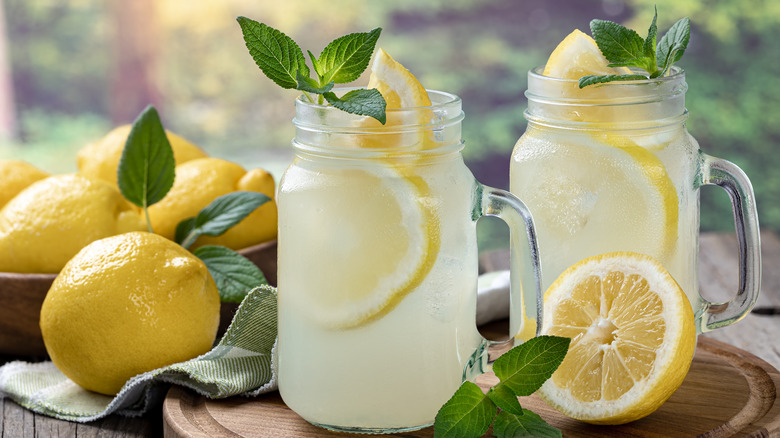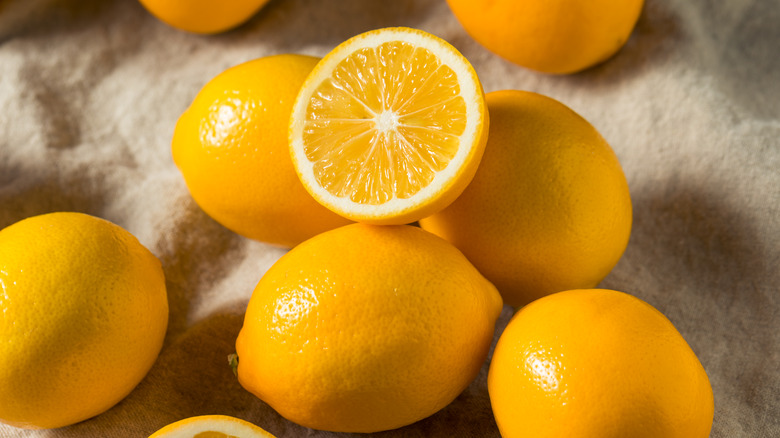Why You Should Consider Using Thin-Skinned Lemons For Lemonade
Whether you're recreating Trader Joe's seasonal jalapeño limeade or whipping up a batch of fresh orange juice at home, citrus fruits and their pulp seem to get you through the hottest of summer days — lemons especially. From watermelon to strawberry, lemonade takes on all of the summer's fruity flavors. But, while the work of prepping fruit is more than worth it for that first sweet and refreshing sip, you'll certainly have to work for it. With as many as six juiced lemons in a classic lemonade recipe — and possibly more if you're making a bigger batch — the lemonade pitcher is a very real visual representation of your hard labor (not to mention your upper body strength). If only there were lemons that didn't require any juicing at all. Oh wait, there just might be.
There are times in life when having thick skin helps, but making lemonade isn't one of them. While lemons with thicker skin require juicing, thinner skinned lemons like Meyer and Eureka lemons, don't. Rather than halving and squeezing each lemon, you can throw these particular types into the blender with other ingredients — the slight amount of white pith will lend just a touch of complex bitterness. After some blending time and a pass through the strainer, your wrists and arms will thank you, but you won't need it. You'll get to thank yourself with a serving of sweet, tangy lemonade. You may even want to make a frozen margarita made from the leftover pulp later.
Picking the perfect lemon for your lemonade
As it's been said time and time again, if life gives you lemons, you should make lemonade — but what kind of lemons? While there are certain situations where you have to make the best out of what life hands you, you'll save yourself a lot of time and effort if you pick the right lemons for your lemonade. But how exactly can you tell if a lemon has thin skin without cutting into it? You just need to know which to look for. Meyer lemons, for one, have a reputation for having thin skin, which is largely why chefs love them so much, as it makes them much easier to squeeze — or not squeeze, in this case. Plus, they're just as fragrant as standard lemons and even juicier.
If Meyer lemons aren't available to you, you can also look for Eureka and dwarf lemons, two other varieties known for thinner skin. Eureka lemons are particularly common and are also very low in seeds. Dwarf Meyer lemons are technically hybrids of lemons and oranges, and while they're not quite as common, they're very juicy and significantly less tart than many other varieties. If you can't find either and are left sorting through standard lemons at the store, all is not lost. Look for fruits without the nubby ends. You can also giving them a squeeze. Thin skinned lemons will be smooth with a slight give.

